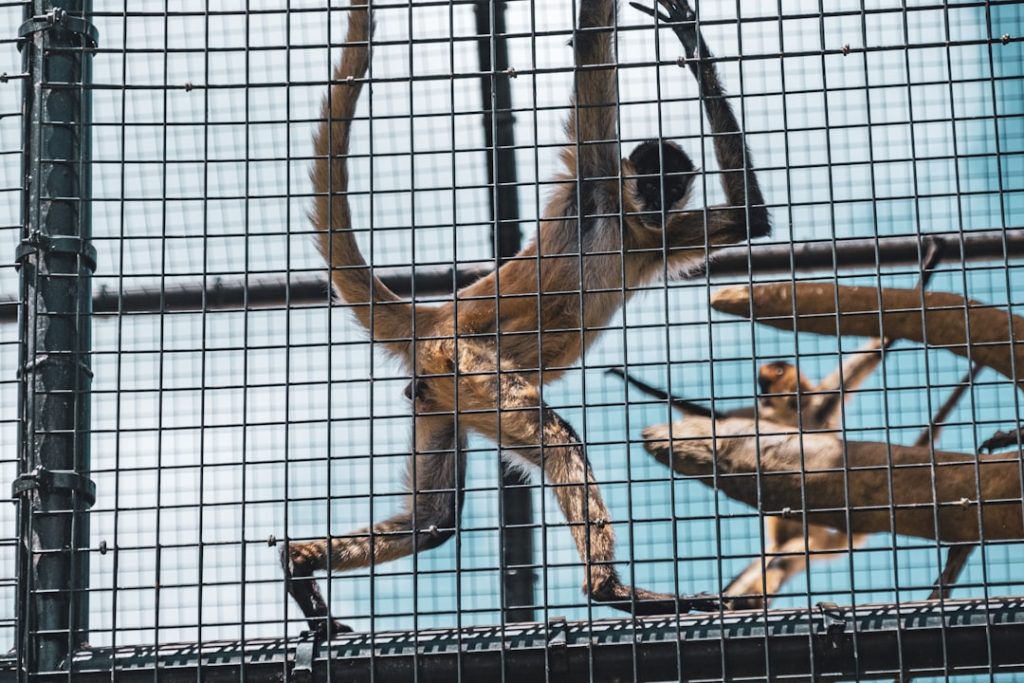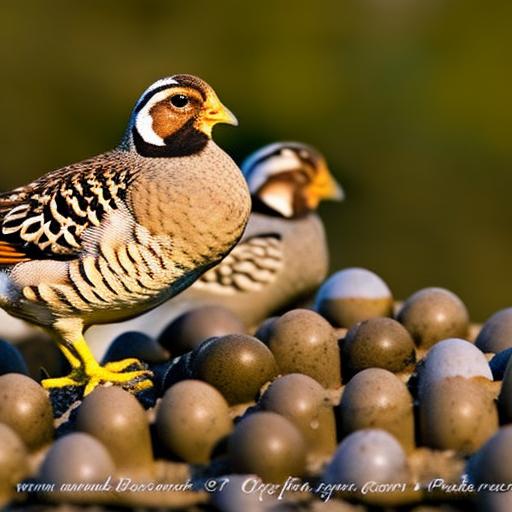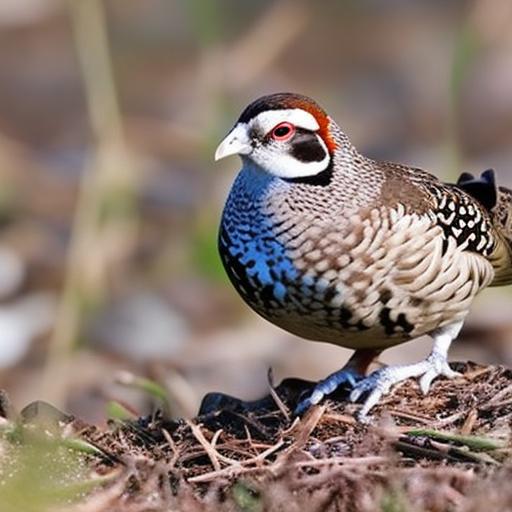Quail breeder cages are essential for those who are interested in breeding quails for eggs or meat. These cages provide a controlled environment for quails to breed and lay eggs, ensuring the safety and health of the birds and their offspring. Quail breeder cages come in various sizes and designs, but they all serve the same purpose of providing a comfortable and secure space for quails to thrive. Whether you are a beginner or an experienced quail breeder, having the right breeder cage is crucial for the success of your breeding operation.
Quail breeder cages are designed to mimic the natural habitat of quails while also providing the necessary space and amenities for breeding. These cages typically include nesting boxes, perches, feeders, and waterers to accommodate the needs of breeding quails. Additionally, breeder cages are often equipped with removable trays for easy cleaning and maintenance. By providing a suitable environment for quails to breed and lay eggs, breeder cages play a vital role in ensuring the health and productivity of the birds. In the following sections, we will explore the factors to consider when choosing the right quail breeder cage, as well as the essential steps for setting up and maintaining these cages for successful quail breeding.
Table of Contents
Key Takeaways
- Quail breeder cages are essential for successful quail breeding and egg production.
- When choosing a quail breeder cage, consider factors such as size, material, and ease of cleaning.
- Proper setup and maintenance of quail breeder cages is crucial for the health and productivity of the quail.
- Providing a balanced diet and access to clean water is important for the well-being of quail in breeder cages.
- Regular monitoring of quail health and behavior is necessary to identify and address any issues promptly.
Choosing the Right Quail Breeder Cage
When it comes to choosing the right quail breeder cage, there are several factors to consider to ensure the well-being and productivity of your quails. The size of the cage is one of the most important considerations, as it directly impacts the comfort and behavior of the birds. The cage should provide enough space for quails to move around freely, as well as accommodate nesting boxes and perches for breeding activities. Additionally, the material of the cage is crucial for durability and ease of cleaning. Wire cages are a popular choice for quail breeders, as they allow for good ventilation and are easy to sanitize.
Another important factor to consider when choosing a quail breeder cage is the design and layout of the cage. The cage should be designed to promote natural behaviors such as nesting, perching, and foraging. It should also include features such as removable trays for easy cleaning, as well as access doors for monitoring and handling the birds. Additionally, consider the number of quails you plan to breed, as this will determine the size and capacity of the breeder cage. It’s important to provide enough space for each bird to prevent overcrowding and aggression. By carefully considering these factors, you can choose a quail breeder cage that meets the needs of your breeding operation and ensures the health and productivity of your quails.
Setting Up and Maintaining Quail Breeder Cages
Setting up and maintaining quail breeder cages is essential for creating a healthy and productive environment for breeding quails. The first step in setting up a breeder cage is to ensure that it is placed in a quiet and secure location away from predators and extreme weather conditions. Once the cage is in place, it’s important to provide suitable bedding material such as pine shavings or straw to create a comfortable nesting area for the quails. Additionally, nesting boxes should be installed to provide a secluded space for quails to lay their eggs.
Maintaining quail breeder cages involves regular cleaning and sanitation to prevent the spread of diseases and parasites. The removable trays in the cage should be cleaned and replaced regularly to remove droppings and soiled bedding. It’s also important to regularly inspect the cage for any signs of wear or damage, and make any necessary repairs or replacements to ensure the safety and security of the birds. By maintaining a clean and well-kept breeder cage, you can create a healthy environment for breeding quails and ensure the success of your breeding operation.
Feeding and Watering Quail in Breeder Cages
Feeding and watering quails in breeder cages is essential for providing the necessary nutrients and hydration for breeding birds. Quails are omnivorous birds that require a balanced diet of seeds, grains, greens, and protein to maintain their health and productivity. When feeding quails in breeder cages, it’s important to provide a high-quality commercial feed specifically formulated for quails. This feed should be supplemented with fresh greens, fruits, and mealworms to provide additional nutrients and enrichment for the birds.
In addition to providing a balanced diet, it’s crucial to ensure that quails have access to clean and fresh water at all times. Waterers should be securely attached to the cage to prevent spills and contamination, and they should be checked regularly to ensure that they are functioning properly. During breeding season, it’s important to provide additional calcium supplements such as crushed oyster shells to support egg production and prevent calcium deficiencies in laying hens. By providing a nutritious diet and access to clean water, you can ensure the health and productivity of quails in breeder cages.
Monitoring Quail Health in Breeder Cages
Monitoring the health of quails in breeder cages is essential for identifying any signs of illness or distress and taking appropriate measures to ensure the well-being of the birds. Regular health checks should be conducted to observe the behavior and condition of the quails, including their eating habits, activity level, and appearance. Any changes in behavior or physical symptoms such as lethargy, loss of appetite, or abnormal droppings should be promptly addressed by a qualified veterinarian.
In addition to regular health checks, it’s important to observe the condition of the breeder cage itself for any signs of infestation or contamination. Parasites such as mites or lice can pose a threat to the health of quails, so it’s important to regularly inspect the birds and their environment for any signs of infestation. Additionally, maintaining good hygiene practices such as regular cleaning and disinfection of the cage can help prevent the spread of diseases among breeding quails. By monitoring the health of quails in breeder cages and taking proactive measures to address any issues, you can ensure the overall well-being and success of your breeding operation.
Breeding and Incubating Quail Eggs in Breeder Cages

Breeding and incubating quail eggs in breeder cages is a crucial step in maintaining a productive quail breeding operation. Quails are prolific layers that can produce a large number of eggs throughout the breeding season. To encourage successful breeding, it’s important to provide suitable nesting boxes filled with clean bedding material where quails can lay their eggs in a secluded environment.
Once the eggs are laid, they can be collected daily and transferred to an incubator for hatching. Incubating quail eggs requires careful monitoring of temperature and humidity levels to ensure successful hatching. The eggs should be turned several times a day to prevent the embryos from sticking to the shell, and any infertile or damaged eggs should be removed from the incubator to prevent contamination.
After approximately 17 days of incubation, the quail chicks will begin to hatch from their eggs. The newly hatched chicks should be carefully monitored and provided with a warm and safe environment in a brooder until they are strong enough to be introduced back into the breeder cage with adult quails. By following these steps for breeding and incubating quail eggs in breeder cages, you can maintain a healthy population of quails for continued breeding success.
Tips for Successful Quail Breeding in Breeder Cages
Successful quail breeding in breeder cages requires careful planning, attention to detail, and proactive management practices. To ensure successful breeding outcomes, it’s important to provide a suitable environment that meets the needs of breeding quails, including adequate space, nesting areas, and access to nutritious food and clean water. Additionally, maintaining good hygiene practices such as regular cleaning and disinfection of breeder cages can help prevent disease outbreaks among breeding birds.
It’s also important to monitor the health of quails regularly for any signs of illness or distress, as well as inspecting the breeder cage itself for any signs of infestation or damage. By addressing any issues promptly, you can prevent potential threats to the health and productivity of your breeding operation. Additionally, providing proper care and attention during breeding and incubation processes can help ensure successful hatching outcomes and healthy chick development.
In conclusion, quail breeder cages play a vital role in providing a controlled environment for breeding quails while ensuring their safety, health, and productivity. By choosing the right breeder cage, setting it up properly, maintaining good hygiene practices, providing nutritious food and clean water, monitoring quail health, and following best practices for breeding and incubating eggs, you can achieve successful outcomes in your quail breeding operation. With careful planning and proactive management, you can create a thriving environment for breeding quails in breeder cages while enjoying the rewards of fresh eggs or meat from your flock.
Looking for more tips on raising quail? Check out Poultry Wizard’s article on the importance of a well-designed quail breeder cage here. It’s essential to provide a comfortable and secure environment for your quail to thrive, and this article offers valuable insights into creating the ideal setup.
FAQs
What is a quail breeder cage?
A quail breeder cage is a specially designed cage used for breeding and housing quails. It provides a controlled environment for quails to lay eggs, incubate them, and raise their chicks.
What are the features of a quail breeder cage?
Quail breeder cages typically have multiple compartments or sections to separate different groups of quails. They also have nesting boxes, feeders, and waterers to provide the necessary resources for breeding and raising quails.
How do quail breeder cages help in breeding quails?
Quail breeder cages provide a safe and controlled environment for quails to lay eggs and incubate them. The compartments in the cage allow for the separation of different breeding groups, which can help in managing breeding pairs and their offspring.
What are the benefits of using a quail breeder cage?
Using a quail breeder cage can help in increasing the efficiency of quail breeding operations. It provides a clean and organized space for breeding, reduces the risk of egg damage or chick mortality, and makes it easier to monitor and manage breeding pairs.
How to set up a quail breeder cage?
To set up a quail breeder cage, you will need to assemble the cage according to the manufacturer’s instructions, place nesting boxes and other accessories, and provide the necessary bedding, feed, and water. It’s important to ensure that the cage is placed in a quiet and secure location to minimize stress on the quails.
Meet Walter, the feathered-friend fanatic of Florida! Nestled in the sunshine state, Walter struts through life with his feathered companions, clucking his way to happiness. With a coop that’s fancier than a five-star hotel, he’s the Don Juan of the chicken world. When he’s not teaching his hens to do the cha-cha, you’ll find him in a heated debate with his prized rooster, Sir Clucks-a-Lot. Walter’s poultry passion is no yolk; he’s the sunny-side-up guy you never knew you needed in your flock of friends!







